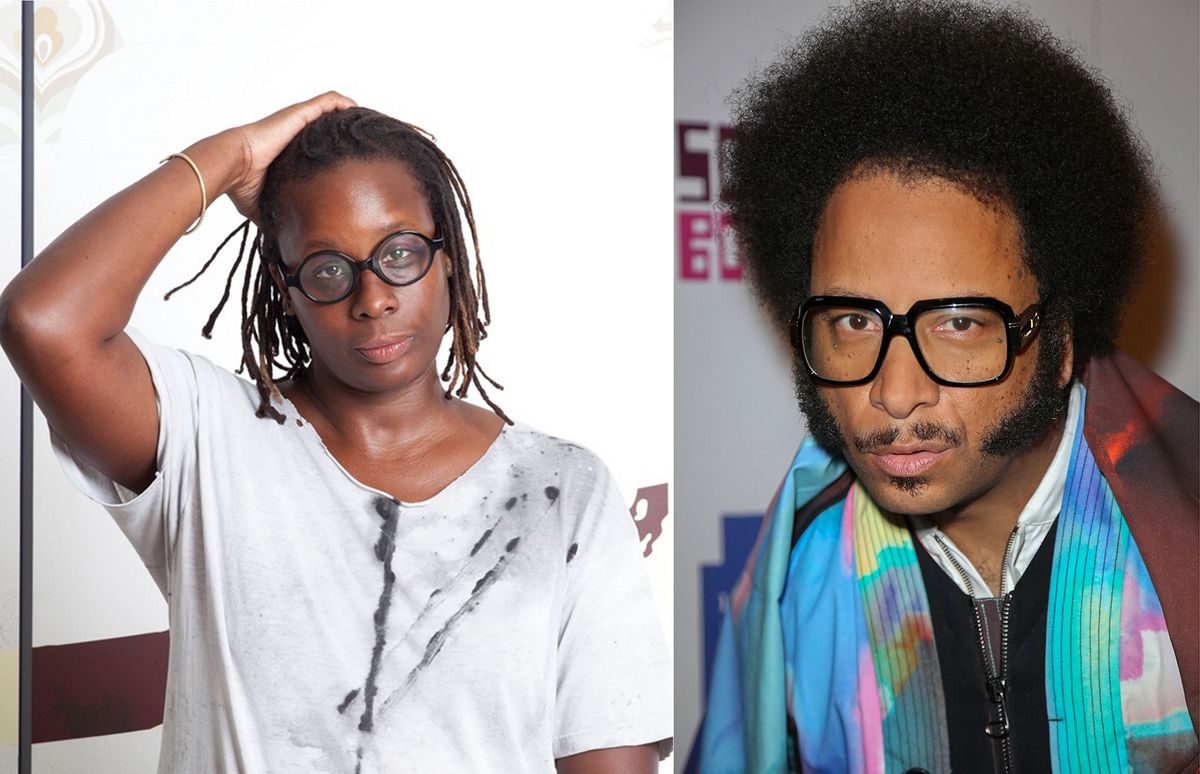“All art is communication, so there are so many similarities between art forms, which is why I was able to do a film [Sorry to Bother You] after doing music for that many years,” says Boots Riley, the musician, screenwriter, director and activist, who is due to take the stage at the Baltimore Museum of Art on 24 April with the artist Mickalene Thomas. The two will discuss art as a catalyst for social change and how their work deals with injustice.
The talk, moderated by the BMA’s director Christopher Bedford, is linked to the museum’s current exhibition Monsters & Myths: Surrealism and War in the 1930s and 1940s (until 26 May), which has works by European and US artists such as Max Ernst, Dorothea Tanning and Salvador Dalí. It is also part of the BMA’s ongoing series The Necessity of Tomorrow(s), on the intersections of art, race and social justice.
While museums exist to bring art to the community, Riley says, “just the fact that the art is in a museum… means that a lot of the community doesn’t go there”, and he hopes that his presence might bring in a different audience. “At the same time, it’s an honour to have people considering my art in all sorts of spaces,” he adds.
In Riley’s opinion, it is not enough for artists to simply make socially-engaged art—they need to get directly involved in a movement. “This is where the population is moved to act,” he says. “This is where the questions that need to be answered are figured out. If artists are merely acting upon what they’ve decided on their own, then they’re out of touch with where people are at and they’re asking the wrong questions.” Riley, a member of activist groups since he was a teenager, has participated in movements such as Occupy Oakland.
Riley’s first foray into screenwriting and film directing, the dark comedy Sorry To Bother You, released last year, involves both social justice and fantastical, surrealist themes. Touching on issues of race and class, its lead character, Cassius Green, takes on a “white” voice to rise to the top of his job as a telemarketer as he struggles with his success and his loyalty to labour rights and his former co-workers. The film has frequently been described as Afro-Surrealist, a literary and cultural aesthetic term coined in the 1970s by the US writer Amiri Baraka, but Riley says he avoids such labels. While he says there “definitely” surrealist aspects to Sorry To Bother You, “surrealism is a tool, it’s not a religion”.
“I think it just opens up the idea that there are other things at play besides what is readily presented to you,” he says, “that there are other rules to the world than what we’re taught, and there are other machinations happening.”


